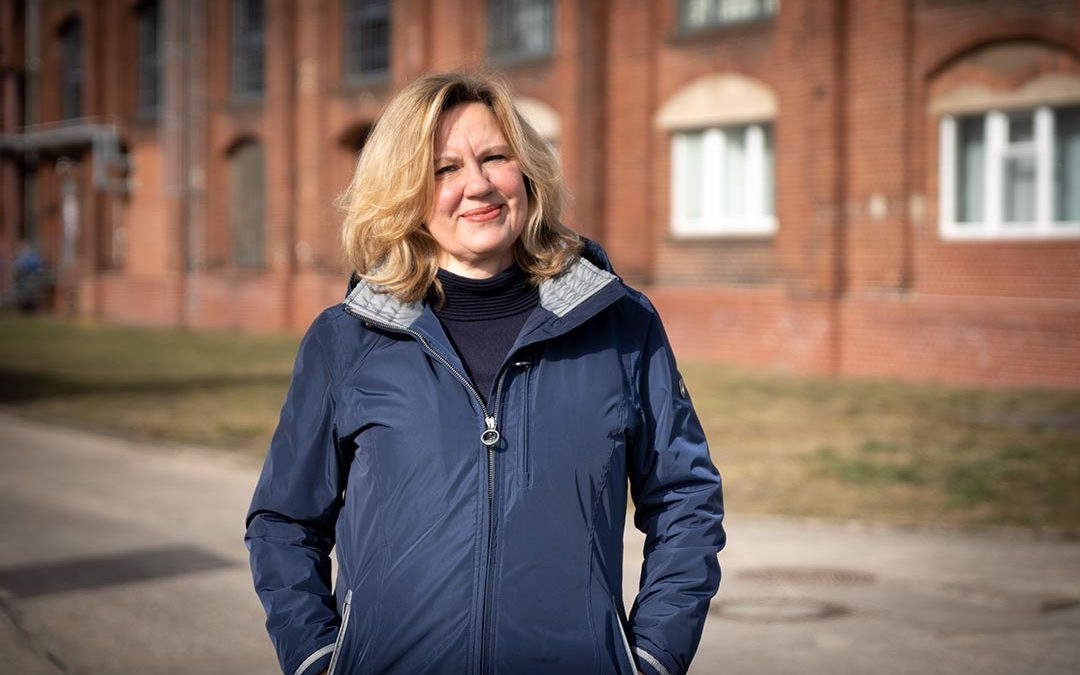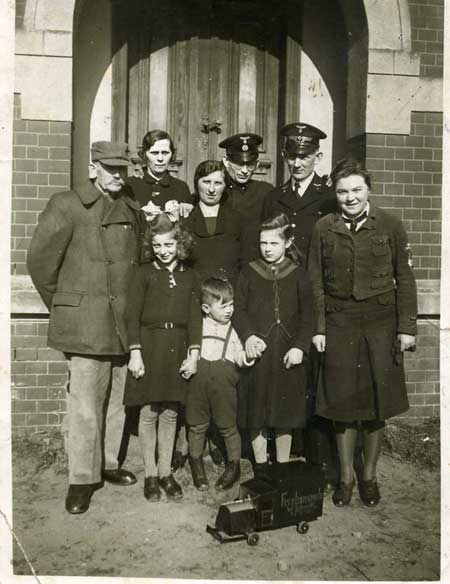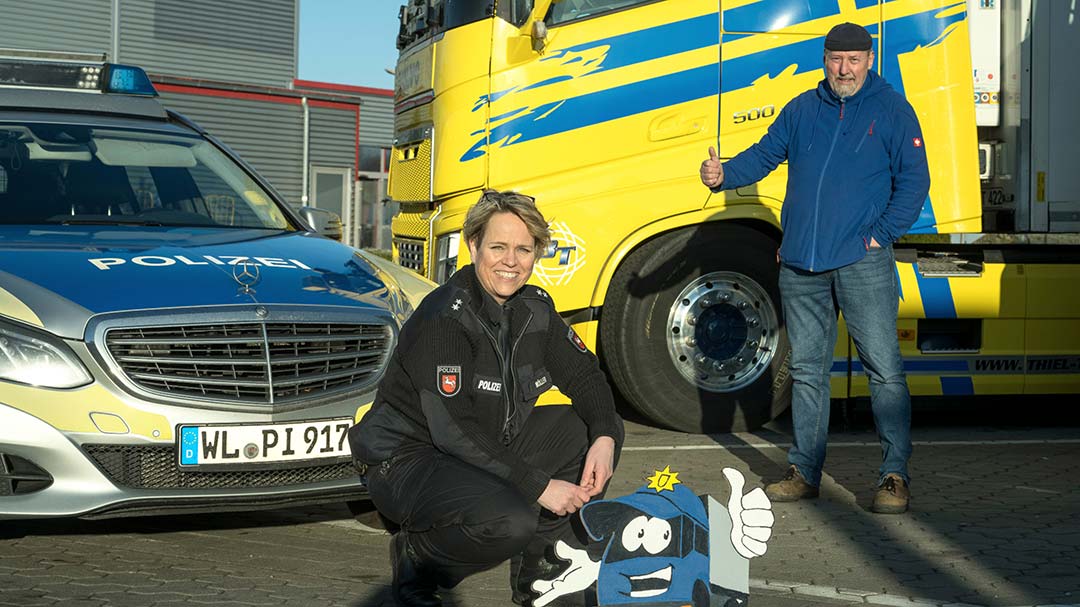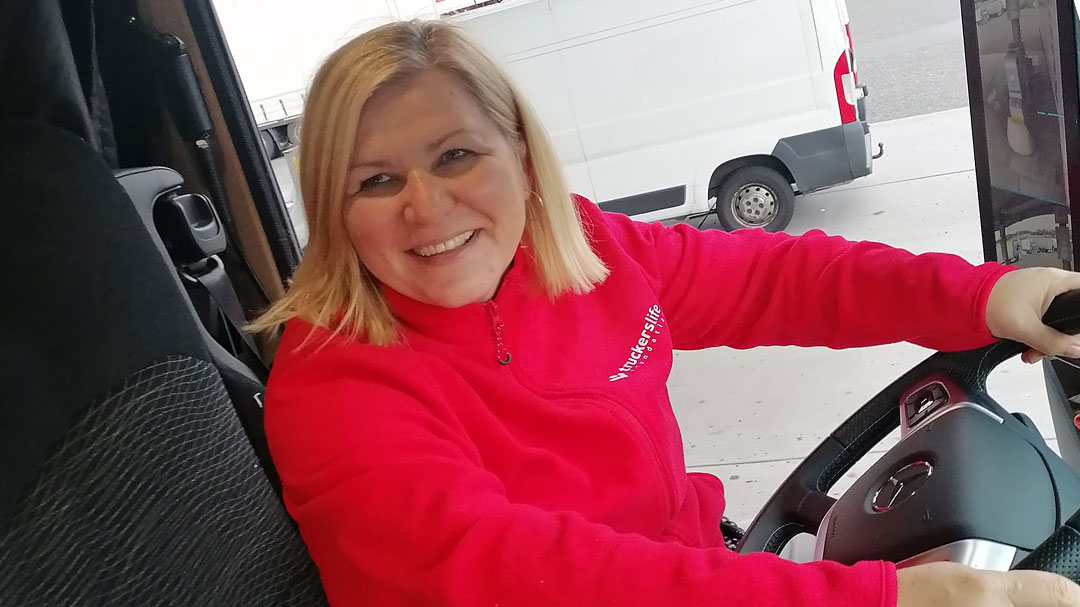Text: Juliane Gringer
Photos: Heiko Matting Photography, private
Entrepreneur Ramona Sabelus is involved with her own association for professional drivers who have got into a difficult situation through no fault of their own: At “Trucker in Not” (Trucker in distress) they can apply for unbureaucratic financial help. Sabelus wants to give the drivers the appreciation they deserve for their important and demanding work.
“I have to do something for the drivers.” This thought has accompanied Ramona Sabelus for a long time. “Especially when they get sick, they are often left all alone,” says the managing director of RS MediTrans and Walter Schmidt Spedition from Wildau in Brandenburg. “I have experienced several examples that were really upsetting.” For example, one of her employees injured himself in a fall from the loading area. When he applied for a special seat for his vehicle so that he could continue to do his job without pain, the Employer’s Liability Insurance Association had initially “squirmed extremely” – and finally refused funding. “That really pissed me off,” the entrepreneur explains. “Let me be clear: these people drive their butts off on the road for all of us. They are on the road day and night. And then they are sometimes treated disparagingly at the ramps – that’s a disgrace. We mustn’t forget that drivers sit in state-of-the-art workplaces and simply do a very important job. I wanted to thank them for that.”
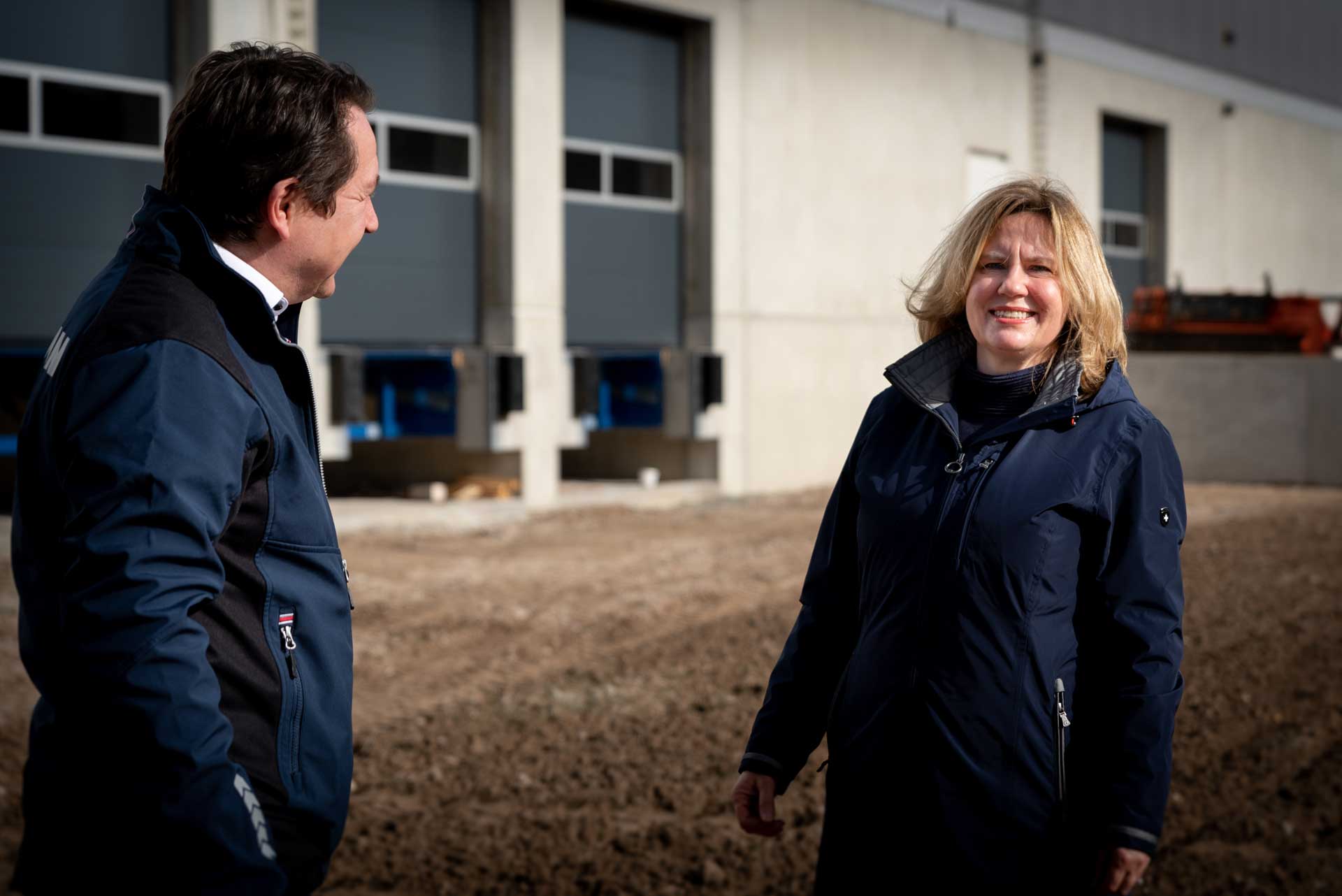
»Let me be clear, these people are driving their asses off on the road for all of us.«
Ramona Sabelus, initiator of Trucker in Not e. V.
Donations instead of gifts
As a freight forwarder, her company cannot function without her colleagues behind the wheel: “I alone cannot achieve anything with my ideas and my skills if I don’t have good drivers. The value of a company is not only determined by its size and turnover figures. Above all, the employees and the cooperation with the management are decisive. “A cleaner is not worth less than someone in management,” says Sabelus. A few years ago, she took a milestone birthday as an opportunity to make the idea of quick, unbureaucratic help for professional drivers a reality: she told all her well-wishers that she did not want any personal gifts and instead asked for donations for a relief project. This is how she was able to found the association “Trucker in Not” in 2015 with 2,000 euros in start-up capital.
The entrepreneur has been involved in voluntary work since the early 1990s, among other things as president of the Berlin and Brandenburg Transport Association (LBBV). The founding of “Trucker in Not” was therefore an obvious idea. “I was very pleased that many board members as well as friends and acquaintances decided to support the association. Membership also costs only 60 euros per year, which almost everyone can afford.” The association finances the aid from the membership and sponsorship fees. Drivers who find themselves in an emergency situation can apply: Grants of up to 500 euros are awarded for urgently needed aids. For example, “Trucker in Not” has already been able to support the purchase of a rehab bed for a driver suffering from cancer as well as the installation of a floor-level shower in the flat of a man who is paraplegic after an industrial accident. And sometimes it is a laptop that helps to keep in touch with the outside world during a long illness.
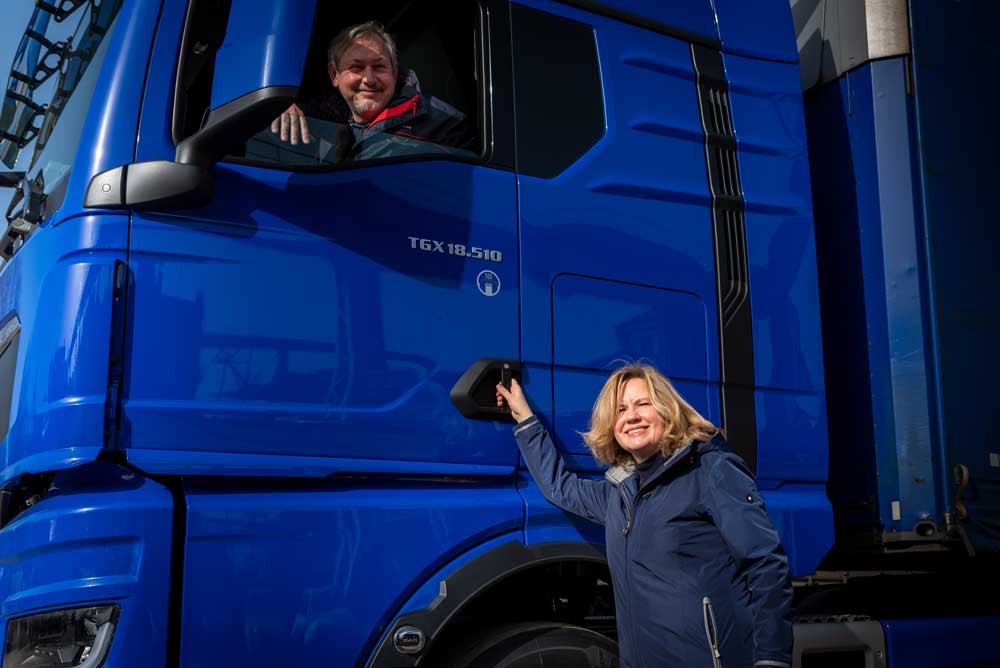
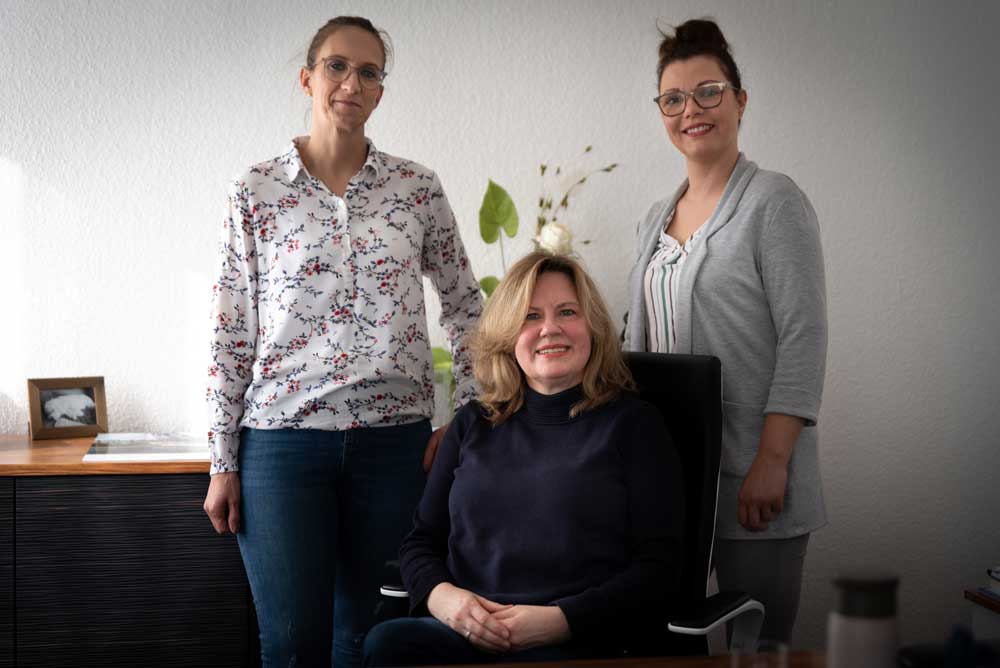
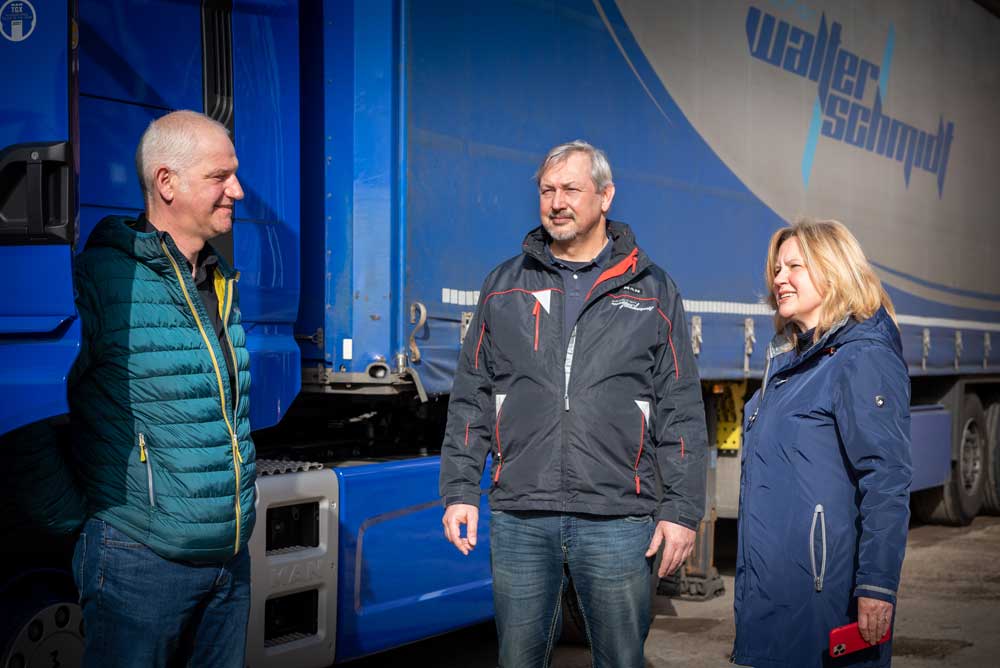
Entrepreneurship in the blood
Then the company became a handling forwarder for Wildauer Schmiede- und Kurbelwellentechnik GmbH: “To this day, we take care of all shipping by land, air, sea and courier,” Ramona Sabelus explains. And soon she received an enquiry from the health company Fresenius: the new federal states were put out to tender as a logistics area. “My father was against integrating it into the company, because we are a pure saddle forwarder,” she recalls. “But I really wanted to do it. I submitted a bid, won the tender and then founded another company in 1999: RS MediTrans.”
“Class prevails”
The fact that she is still an exception as a woman at the head of a company in the transport industry hardly matters to her herself. “I am convinced that even a woman can get a job in a haulage company if she is professionally well positioned. We have a lot of women working in our company, for example my scheduling manager,” she reports. “Of course, you don’t see many women in the industry, and they certainly have to assert themselves a bit more. But I don’t think much of the quota, because I don’t believe that women have to be favoured. I always say: class prevails. “
Everyday work of professional drivers is challenging
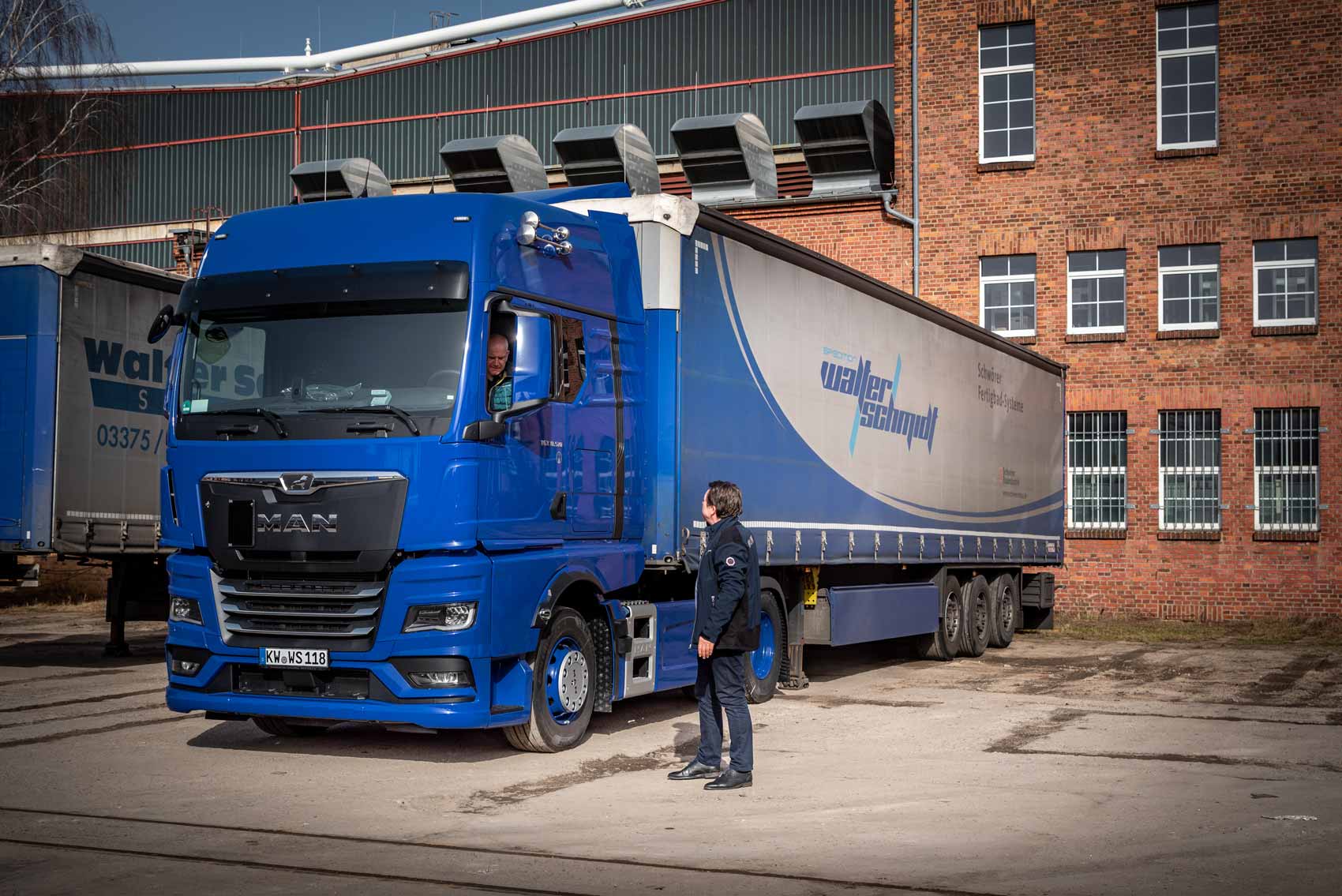
Drivers play a major role in the company’s success
And she has another idea: she would like to create a meeting place where drivers who have become ill or have a disability due to their job can meet and exchange ideas with healthy colleagues. “For example, a representative from a commercial vehicle manufacturer could come and report on the latest developments – simply so that the drivers who no longer work still feel they belong.
Ramona Sabelus is currently building her own logistics property. She has already planned a room where the drivers can wait in a pleasant atmosphere and also spend the night if necessary. “The room is equipped with air conditioning, Wi-Fi and a TV connection. “Because most of the time you don’t need much at all to feel comfortable: “Colleagues can find some peace and quiet and a shower there, watch a football match or relax a bit after work – just have a normal evening at work.“

